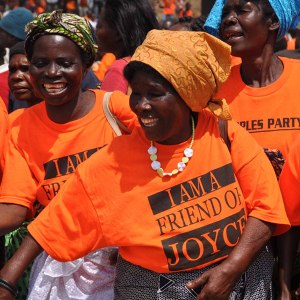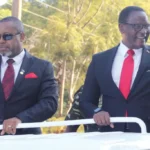Malawi’s politics of shifting parties
Published on April 14, 2012 at 2:37 PM by FACE OF MALAWI
It is not news in Malawi to see and hear that that politician who was very strong in that party yesterday has today ditched the party and opted to join a much promising one. It might have been pointed out already but repeating it will not make any harm. Stressing it may help people know how serious this issue is and the need to reflect on it. Give us a chance then to give our opinion on some of the effects of having politicians shifting from one party to another.
At the dawn of democracy when Bakili Muluzi was the president of the republic, political veterans changes allegiance freely, moving from their parties to the then ruling party. These people were applauded and recommended for making the right choice. They gave their testimonies publicly, hailing the ruling party as the only party with sound and practical ideologies. In the process, they ridiculed the party from where they were coming from. This helped them to earn high posts in the government. The ruling party became strong because of accumulation of those popular names in politics.

United Democratic Front (UDF) declined and is heading for oblivion as a result of the same political habit which gave rise to its strong establishment. Big political figures flocked to the ruling party again. No wonder then that the strength and popularity of Democratic Progressive Party (DPP) was built on stolen heavyweights from UDF. Can we fail to confirm a piece done by Billy Kaunda, himself a politician, that woyenda ndi lupanga adzafa ndi lupanga? (Those who move with a sword will die by a sword). Is this an exercise of freedom of association granted in chapter IV subsection 32 of our constitution?
Nobody should remind us that the government and the opposition are two different things. Their goals are distinctly marked though the wish of any political party is to rise to the level of a ruling party. The government has objectives that ought not to be affected by the change of ruling parties.
The parties goal depend on its manifesto and means thought best in leading to the proper realization of the concerned aspirations. The shifting in parties has a bearing on the electorates who in most cases have to change as they follow their leader.
But what is behind the movement by these subtle politicians? Their move does strengthen the receiving party numerically and raise its popularity. We cannot rule out that these people indirectly help in the governing of the country especially when they are given right positions. However, the shifting of parties usually reveals a common pattern.
Most people who change party allegiance do not really have a change in their convictions as regards the different ideologies of the parties. This is guided by selfish motives.
Normally, when they are announcing their decisions, they claim to have realized the inadequacy of the principles their former party and praise their new party’s way f running things. This remains very doubtful, at least if we can go by the limited experience as we have been taught through the happenings in our own country. People can move from one party to another then even go back to their former party. Does this suggest movement based on principles?
We cannot be wrong then to generalize that the movements are not for the common good but selfish and egoistic motives. If given positions, can they bind themselves to serve for the realization of the government objectives? Do they really work to protect the social and economic welfare of the citizens? Can they promote the well-being and social security of the society by minimizing the inequalities of wealth being accumulated?
There is a danger that when people just change parties overnight, the same governing policies are perpetuated. These ‘mobile’ politicians can be so influential. Here in Malawi, there are numerous examples of people who have been actively on the scene for ten, twenty, forty years and more. This suggests that our political mentality has remained static. No wonder Lucius Banda lamented in his song that ‘anthuwa ndi amodzi angosintha mayina’ (these are the same people they just change their names). Just try to csrutinise the names of people who made headlines five to ten years ago, you will find the same names making headlines today except those who passed away. Can recycled politicians give us anything new?
Our popular wisdom clearly stipulates that ‘wakuba ndi wakuba ngankhale m’mupatse zofunika zones adzababe’ (a thief will remain a thief despite being given everything they need). These opportunistic politicians will remain who they are may be with minor adaptations.
Psychologists and sociologists teach us that change does not happen abruptly. It is a gradual process that wrestles against the individual background. As such, we do not expect a different style of leadership if our government remains in the hands of these same people.
Democratic principles remain ideal and they are not attained fully anywhere else in the world. But some countries are succeeding better in following these principles of democracy. The question then is: if some ca, why can’t we?
We must learn what it means to belong to a party. True allegiance is rooted in the tenets and not in the success of the party. Politics is like a football game as seen from a supporter’s point of view. A true supporter will not abandon their team just because it is not winning games or because their favourite player has left the team. Be a person who is involved in bad and good times as well. If it is about searching for personal gains, we are ye to see more movements.
Some who have been categorized a young politicians make necessary moves to gain the ground. The duty should be of helping them otherwise they will remain raw. The unfortunate thing on the arena is the reluctance and unwillingness to groom them. The idea of just shifting anyhow is a contributing factor. Can we rest for a moment and look at what we stand for?


